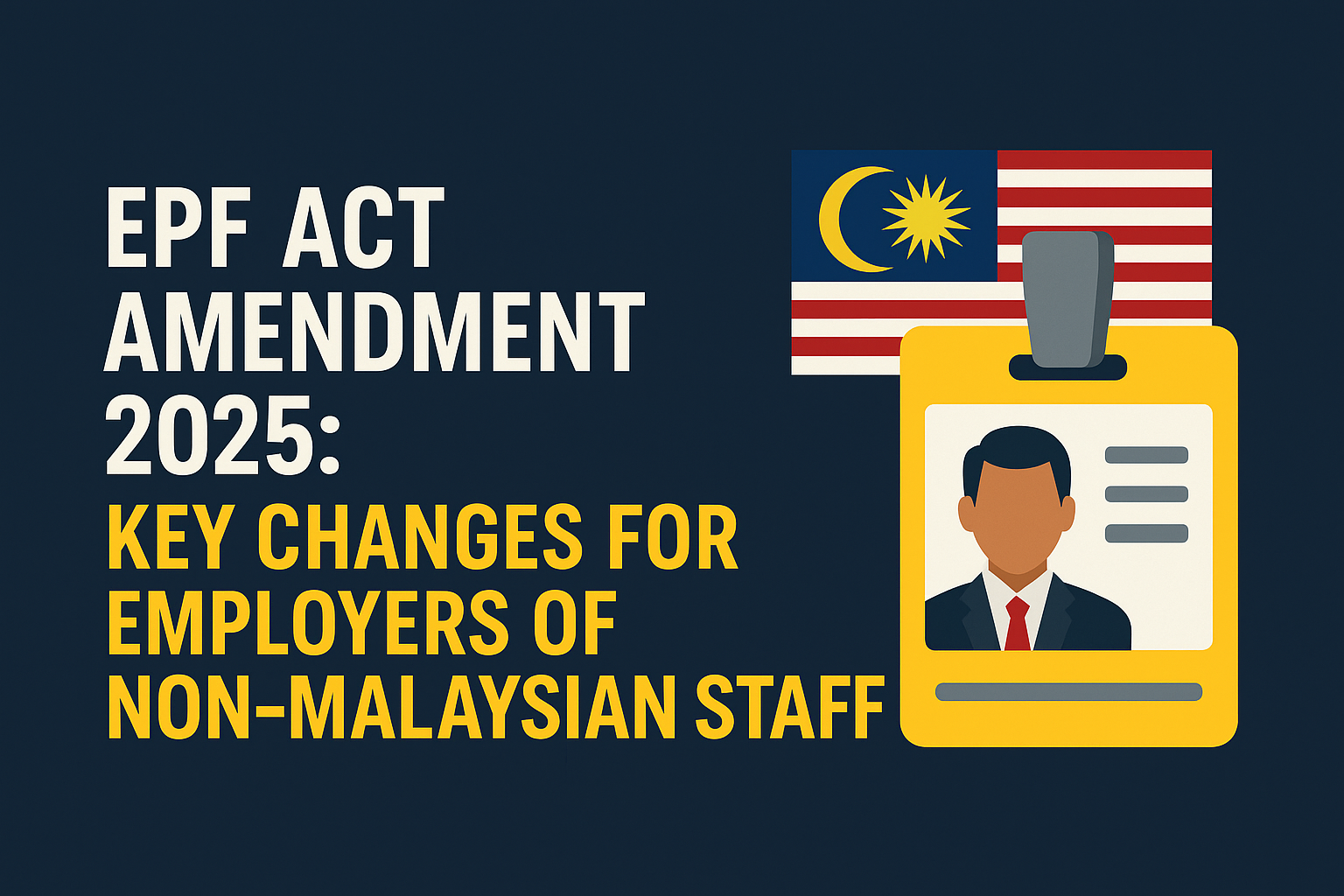The Malaysian government has recently gazetted the Employees Provident Fund (Amendment) Act 2025, which introduces significant changes to the main EPF Act 1991. The primary focus of these amendments is to streamline, clarify, and consolidate the provisions related to non-Malaysian employees contributing to the EPF.
For any company that hires or plans to hire foreign talent, understanding these changes is crucial for ensuring your payroll and HR processes remain compliant. This article will break down the key amendments and what you need to do to prepare.
The Main Goal: Streamlining the Law for Non-Malaysians
The core purpose of this amendment is to simplify the law. Previously, rules regarding non-citizen contributors were found in various parts of the EPF Act and its schedules. The government has now consolidated these provisions, primarily under Part VIIA of the EPF Act, to create a single, clear source of truth.
Key Changes in Detail
Let’s look at the most significant changes introduced by the amendment.
1. Clearer Definitions and Scope
The amendment makes several technical changes to clarify exactly who is covered:
- “Member” vs. “Employee”: Throughout the relevant sections, the term “member of the Fund” has been replaced with “employee”. This small change emphasizes that the rules apply based on one’s employment status in Malaysia, not just their membership with the EPF.
- New Section 70A: This section has been revised to clearly state that these rules apply to employees who are (a) not Malaysian citizens, (b) whose country of domicile is outside Malaysia, and (c) are in Malaysia temporarily under an immigration pass.
2. A New Contribution Schedule for Non-Malaysians (Part F)
This is the most critical change for payroll administration.
- Deletion of Old Schedules: The old contribution schedules for non-Malaysians (specifically Parts B and D of the Third Schedule) have been deleted.
- Introduction of Part F: A new Part F has been inserted into the Third Schedule. This new section now exclusively governs the contribution rates, wage caps, and calculation methods for all non-Malaysian employees who contribute to the EPF.
- Key Rules in Part F: It specifies that contributions must be rounded up to the next whole ringgit and gives the EPF Board the authority to set caps on wages subject to contribution.
What This Means for Your Payroll Process (Action Plan)
These legislative changes require employers to take specific actions:
- Review Your Foreign Workforce: Re-assess your non-Malaysian employees to ensure their status aligns with the updated definitions and that you are applying the correct contribution rules to the right individuals.
- Update Your Payroll System: This is essential. Your payroll software and calculation methods must be updated to refer to the new Part F of the Third Schedule for calculating EPF contributions for your non-Malaysian staff. Using the old schedules will result in incorrect contributions.
- Communicate with Your Staff: Inform your non-Malaysian employees about these changes to ensure transparency regarding their EPF contributions.
Stay Ahead of Legislative Changes with SMONE
Keeping up with amendments to core legislation like the EPF Act is a critical compliance task. Errors in contribution calculations, especially when managing different rules for different employee groups, can lead to significant penalties and administrative burdens.
SMONE’s Payroll & HR Compliance service ensures your processes are always aligned with the latest legal requirements. We handle the complexity of different contribution schedules, including the new Part F for non-Malaysian employees, so you don’t have to. Our expertise ensures your business remains 100% compliant, freeing you to focus on your people and your growth.
Contact us today for a professional review of your payroll system.
(Disclaimer)
This article is for general informational purposes and summarizes recent legislative amendments. It does not constitute legal advice. Please refer to the official gazetted Act and KWSP circulars for complete details.


